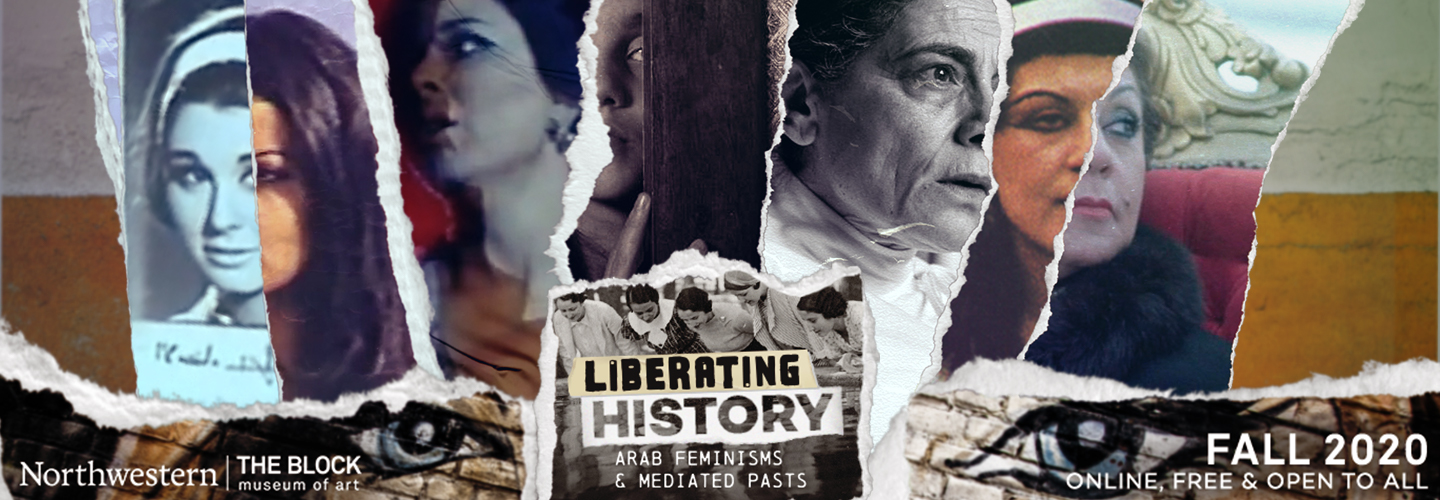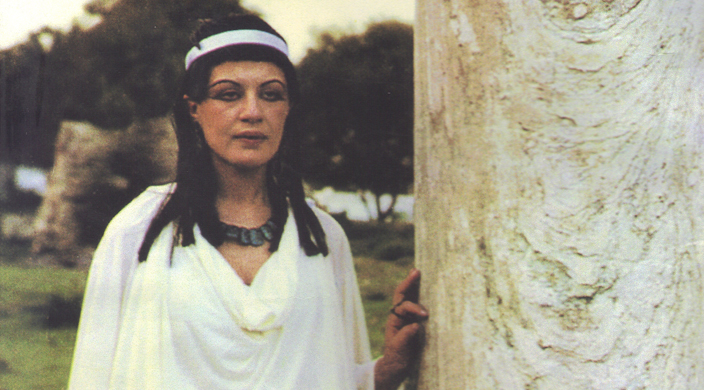Cinema
October
22-23
7 PM
Event Details
Date & Time:
Thu October 22, 2020 - Fri October 23, 2020
7 PM
Audience:
Open to the public
Details:
Online screening of FATMA 75 followed by a live discussion with a scholar of Maghrebi women's cinema Florence Martin
FATMA 75
(Selma Baccar, 1975, Tunisia, digital, 60 min)
(Selma Baccar, 1975, Tunisia, digital, 60 min)
Starting at 7 PM Central Time on October 22nd, FATMA 75 will be available to watch via a Block live video stream, followed by Q&A. It will be available to view for an additional 24-hour period. Please RSVP through Eventbrite.
Followed by a live discussion between Professor Florence Martin, scholar of Maghrebi women's cinema, and NU candidate in the Department of Political Science Issrar Chamekh
Followed by a live discussion between Professor Florence Martin, scholar of Maghrebi women's cinema, and NU candidate in the Department of Political Science Issrar Chamekh
About the film:
Banned in its country of origin until recently, Fatma 75 is the first non-fiction film made by a Tunisian woman. It is a feminist essay film that uses the figure of a young woman, a university student, to embody and expand on the political histories of significant women in Maghrebi history. The protagonist is called Fatma as an ironic reference to the name French colonizers used to refer to Arab women. Director Selma Baccar combines fiction and re-enactment with interviews and archival material to vividly illustrate the intersecting histories of Tunisian independence and women’s emancipation. Shown in a new digital restoration produced by Africa in Motion.
The restored version of Fatma 75 appears courtesy of Africa in Motion. Fatma 75 was restored in 2017 by the Africa’s Lost Classics project (initiated by Africa in Motion and University of Glasgow, funded through an Arts and Humanities Research Council (AHRC) grant). Thanks to Selma Baccar and Stefanie Van de Peer for their support.
Event Introduction and Discussion
PART OF THE BLOCK CINEMA SERIES:
LIBERATING HISTORY: ARAB FEMINISMS AND MEDIATED PASTS
Liberating History: Arab Feminisms and Mediated Pasts celebrates Arab women filmmakers. The films draw on archival material, Islamic visual culture, and ethnographic practice to bring a decolonial and feminist perspective to personal and national pasts. The series includes path-breaking films such as Heiny Srour’s LEILA AND THE WOLVES, which centers Arab women’s struggles in the region’s modern history, and Selma Baccar’s FATMA 75, an essay film combining history and fantasy, as well as other rare and recent selections from the Middle East and North Africa. The series will also feature two nights of short films curated by the Habibi Collective.
Co-presented by The Block Museum of Art with support from the Gender & Sexuality Studies Program at NU, the Middle East and North African Studies Program at NU, and Cultural Services of the French Embassy
Co-presented by The Block Museum of Art with support from the Gender & Sexuality Studies Program at NU, the Middle East and North African Studies Program at NU, and Cultural Services of the French Embassy
Contact The Block Museum of Art for more information: (847) 491-4000 or email us at block-museum@northwestern.edu
Press Coverage
Cinefile
The Daily Northwestern
Screen Slate

